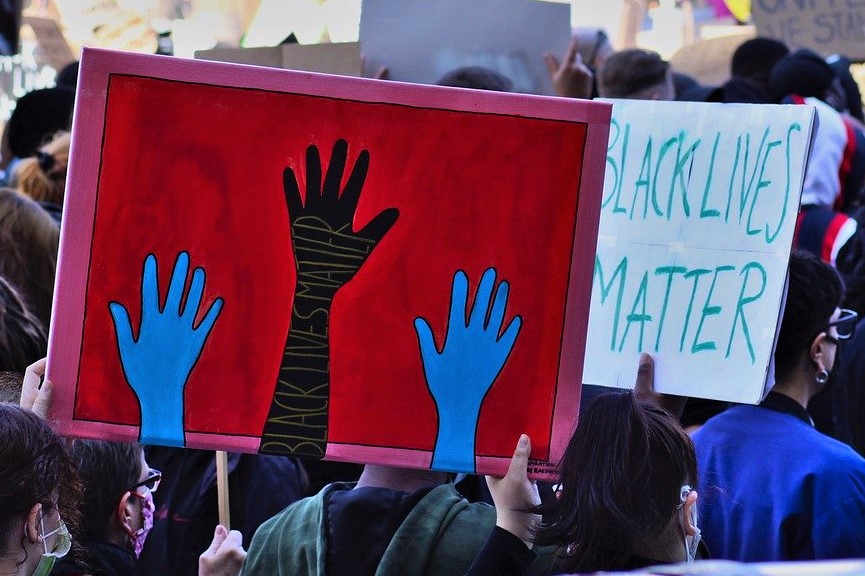Black, with a Capital B Posted by Gary Locke on Jun 11, 2020 in Culture, English Language, News
We appear to be undergoing a significant cultural moment. For the first time in 50 years, real and fundamental changes in how people think about race relations are taking place. This isn’t just happening in the United States, although the moment most profoundly affects our nation. The worldwide reaction has also been significant and is very moving to many of us in America. We may be witnessing one of the most transformative events in history. It is even affecting our language.
Transformative is an adjective that means “causing or able to cause a change; to cause someone’s life to be different or better in some important way.” That is no small thing. The goal of the Black Lives Matter movement is, in fact, to bring about transformative change in awareness and attitudes toward basic human rights and racial equality for Black Americans. It is a campaign against any and all forms of racism.
Changing Standards
Notice that I capitalized the word Black. When speaking of a culture, ethnicity or group of people, the name should be capitalized. Black with a capital B refers to people of the African diaspora. Equally (pun intended), when referring to members of the Caucasian race, you should refer to them as White. Until recently, most style guides did not recognize this distinction. Still, many scholars, linguists, and activists have argued the point for years. To maintain a lowercase standard for an entire race is to reduce their significance only to their skin color. Now, the standard has changed. This is yet another elemental transformation taking place.
BLM
The phrase Black Lives Matter has been with us since 2013 when it became a popular social media hashtag and slogan following the acquittal of a White man in the death of an unarmed Black teen in Florida.
Black Lives Matter, or BLM for short, has become much more than the social media hashtag it once was. Black Lives Matter is also more than a social and political movement. It is a straightforward fact. Much was made of responding to the phrase with, “All lives matter.” This naïve reply fails to take into account the very point of the BLM rallying cry. There are institutions in our society that have behaved as though Black lives don’t matter.1https://www.washingtonpost.com/opinions/2020/05/29/heres-why-we-dont-see-protests-when-police-unjustly-kill-white-people/
The Problem of Racism
We say that racism is systemic. That is, racism affects us all, not just a part of society. There isn’t just one isolated factor contributing to racial inequality and injustice. The problem goes beyond the police, or the justice system, or political beliefs. Racism has found its way into every facet of our culture. Black experience in this country, and throughout the Western world, is simply not the same experience that White people have. It can be as blatant as housing discrimination, or as seemingly innocuous as buying adhesive bandages.
What matters is that we are all discussing the problem now. When we saw the horrific video of George Floyd being murdered it triggered something in many of us that we couldn’t easily ignore. The response to that outrage is different than many of us have experienced before. There have been protests and marches throughout the world, and in all 50 states, in small communities and huge metropolitan centers. When I say that this moment in history may be culturally transformative I am not using hyperbole, meaning an exaggeration, or a claim which shouldn’t be taken as truth. But this time, I want you to know the truth. We are living in a transformative time.
And Black Lives Matter.
- 1https://www.washingtonpost.com/opinions/2020/05/29/heres-why-we-dont-see-protests-when-police-unjustly-kill-white-people/

Build vocabulary, practice pronunciation, and more with Transparent Language Online. Available anytime, anywhere, on any device.




